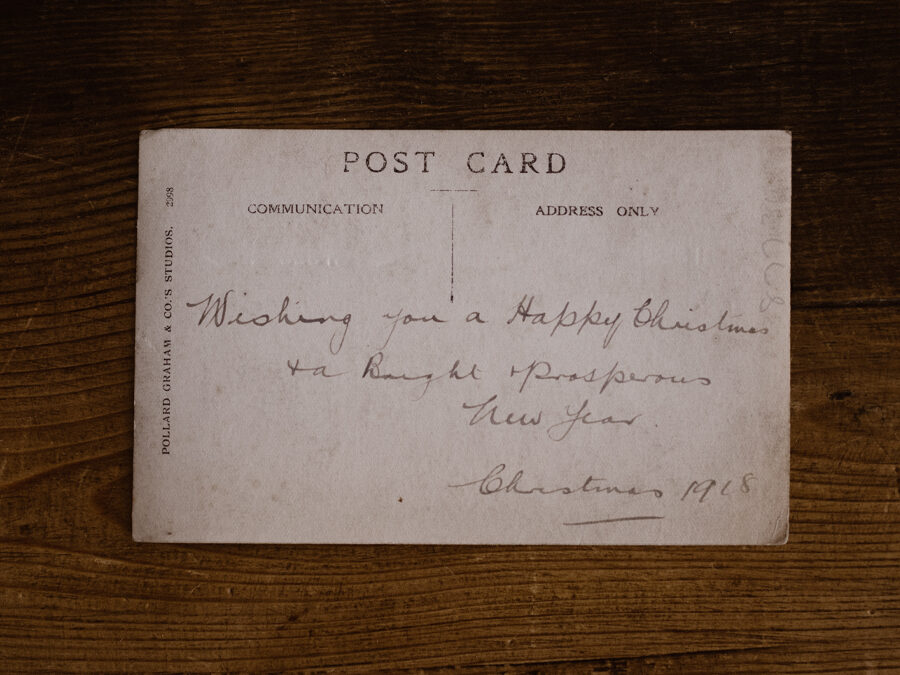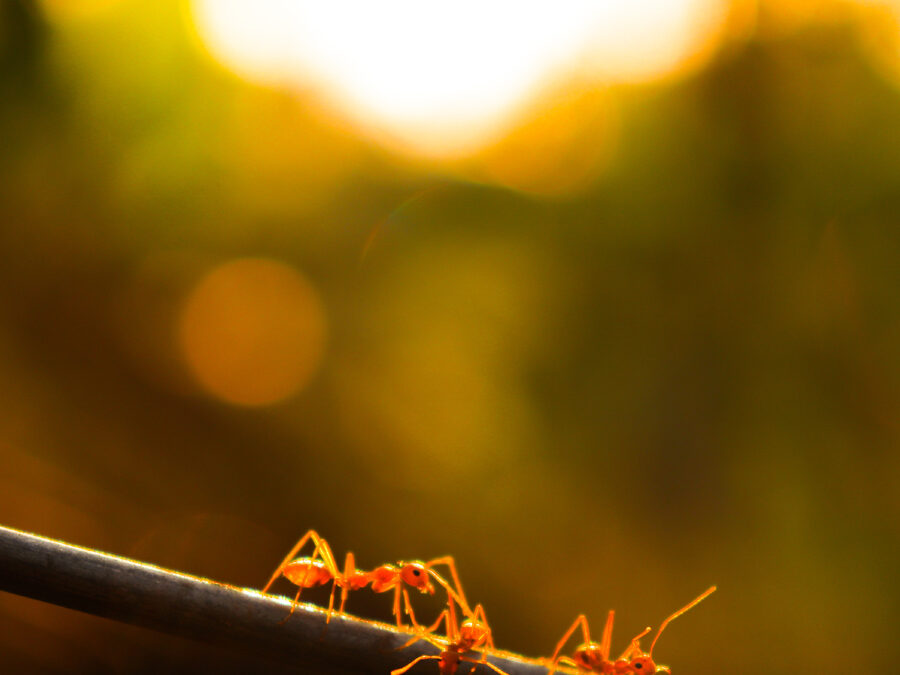
by Fractured Lit | Aug 14, 2020 | news
We’re proud to announce the 56 titles of our longlist! The submissions we received were fresh, fierce, and so engaging that we’ve had a hard time narrowing down the list! From this list, 25 stories will make it to the shortlist for judge Megan Giddings to choose her final 3 winners! Please don’t identify your story title as the shortlist will be delivered to Megan anonymously!
When It Gets Cold in the South, The Youngest Baby Dies
Instructions for Avoiding INS, 1996
You Married
Departures
Rada’s Story
Exigua
Jump Cut
Eyes Like Cherry Tomatoes
Wolfie
The Nineteen-Point Day
Bird and Balloon Go Racing
Carlos Inside Out
Adam and Eve
Aeroplane man
Sweet-tooth
Crocodile
Where is Stephanie East?
Too Contrived
Bed 15A, Qualia
Here Is How
Southwest Loop 820
Skeleton Crew
Morning
There is No Ocean in the Bucket
Sole
Crawl to Me
Funeral Party
Stripping Off the Glitz
Revenge of the Cloud Makers
Introduction to Improv Tragedy
Antiparticle Delivery Driver
Stories
Summer Hand
Mrs Chandler Wants to Know
The Tick
The Future History of the Arctic
A List of Things I Have Used the Knife for Thus Far
Surely, You Aren’t Like Them
Consider the Shape of Your Fist
Disappearing
There, I Said It
Benny
Counting Trees With Mr. Gillson
Ellis
The Unicorns
Peach Fuzz
Tagged
Teeth
SixFeet
Spaghetti Junction
The Ceremony
Remember Tomorrow in Seasons
Beers and Blueberry Cosmos
You Will Do This
We Are Still
Pelee Island

by Jonathan Andrew Perez | Aug 13, 2020 | micro
In the footnote: He read Basketball diaries, but he was Latino and he did not wear a shirt titled, Latinidad, or at least not out in the daylight, or it was that his shirt titled Latinidad was too tight to fit into. He could finger roll like Ewing. He could fake to one side while backing down a privileged white boy in Carl Schulz park on 86th street near the East River, like Pippen (but not Mike). The large hulking building to the right was where Margaret Sanger’s son grew up, and eventually someone got pregnant. He hated being expected to do more than he was. The rest of the day was spent catching butterflies in a small net, and watching them come to rest in a container bought from the party store. He felt them deeply as their wings slowed to a rest, and the beautiful colors shined in the polluted light over the FDR driver. It all made sense.

by Alexandra Matthews | Aug 10, 2020 | flash fiction
Bette was stirring her coffee when she saw the postcard, tucked between a large print arthritis monthly and debt consolidation offers.
On the front was a rose window. She turned it over, expecting to learn that Jesus loved her, or God would smite her.
Finally taking a road trip. Made it to Atlanta. Slept in a twin bed last night. Ha! Got this in the motel gift shop. Beautiful. No time to see the real thing. Have you heard from Lars? Tomorrow: Louisiana. —Glen
It was addressed to the former tenant, Martha. Martha had died a month earlier from a stroke and Bette got off the waiting list for senior housing. It was affordable and there was a clubhouse. She liked the picture of a group playing cards in the pamphlet.
Bette clipped the postcard on the fridge next to a diner delivery menu, where she had circled Meatloaf with Mashed Potatoes and Caesar Salad.
She took a sip of her coffee, then spit it back in the mug. She’d bought the coconut creamer again.
***
The second postcard came a week later. It had Louisiana landmarks on it.
New Orleans! Full of music and life. Had my first beignet. Best thing I’ve eaten in a while. Wish we could’ve tried them together. Lars isn’t answering my calls. I think we should’ve waited to tell him. Headed to San Antonio now. —Glen
There was no return address, no way to tell him Martha was gone.
Bette had never had a beignet. She looked it up on the internet: fried dough squares covered in powdered sugar.
She went out to buy a cruller and confectioner’s sugar from the grocery store. She expected the nice cashier with the blue hair to be there. Maybe she would tell him about the postcards. But the shy girl rang her up instead.
At home, Bette warmed the cruller in the oven, then sprinkled the sugar on top. As she was cutting it into quarters, the knife slipped, slicing her index finger. She watched the blood turn the sugar into a bright red paste.
She rinsed her finger and fished a bandage out of the first aid kit. Rubbed a little honey on the soft part of the bandage before putting it on, like her mother used to do.
When Robert was alive, Bette thought, he would have called her stupid for trying to make a beignet out of a cruller, for putting honey on a wound.
***
The day she received the postcard from Texas, Bette skipped her crochet group to wait for the mail. Her joints were stiff and the women didn’t talk much.
San Antonio is unlike any other city. Hope to do the River Walk with you some day. You said you needed time. I understand. Lars will accept it, accept us. You were separated by then. Already in Tucson. Heard cacti can grow to be several stories high. Let you know if I see one. —Glen
Her stomach turned, like it did when she forgot to take her ulcer medication. Tucson was just hours from San Diego.
Bette considered calling her son, asking to stay with him in L. A. for the week to spend time with her grandchildren. But she knew he’d say they were busy. She had barely seen them since Robert passed.
Lars might give up the cold shoulder and tell Glen, she hoped.
Bette put the Greetings from San Antonio! postcard on the fridge next to the others and took a microwavable chicken pot pie out of the freezer.
***
On the postcard from Tucson was a single cactus with pinkish-white flowers.
I’ve seen weeds taller than some of these “big” cacti. Guess I wasn’t looking in the right place. I’m coming to see you, to talk in person. You might not open the door, but I have to try, make the grand gesture. You are the sweet to my sour, Martha. I won’t leave here for a couple of days. —Glen
Glen would get to San Diego that day, or at most, the day after.
Bette imagined Glen angry. She had read his postcards, kept them for herself. She had attempted to make a beignet. By pretending for a moment she was someone else, she had betrayed him somehow.
She considered shutting the blinds and hiding in her bathroom until he left or one of her neighbors called security.
No, she thought. He wouldn’t be angry. He’d be sad, heartbroken. Like her, he would feel alone.
Bette filled her electric kettle with water. She arranged an assortment of herbal teas, two mugs, and a plate of sugar wafers on a serving tray. In a small bowl of honey, she put the wooden dipper she never used.
When he arrived, Bette would offer Glen something sweet, something soothing.
And he would listen.

by Kara Vernor | Aug 6, 2020 | flash fiction
Maggie has clouds for eyes. Also, she barely talks. Other kids have asked her how those clouds got stuck there, but she just blinks back, clouds churning. My best friend, Bernice Wallers, heard Maggie used to have eyes like ours, that fire ants devoured them while she slept. “All that was left were two smoking holes,” Bernie said, “so the clouds moved in to cool them.”
Mrs. E paired me with Maggie for our 6th grade presentations on World War II. We got Japanese Internment Camps. Maggie hasn’t opened a book even though we’ve been studying for twenty minutes. She says, “They’re American internment camps. Americans interned Americans, Japanese-Americans.”
“No one likes a know-it-all,” I say, and I slam a book down on her fingers. “Open it and read.” Then I wonder if she can read, with eyes like hers.
I’m not the only one who hits her. My mom told me once, “Maggie makes her own weather,” which was basically my point: she makes us want to hit her. Yesterday, when I saw tears on her face, I willed my hands to stop. I said, “Look, don’t cry. Maybe you could try talking more?”
She said, “It’s rain; I can’t help it.” She didn’t think twice about my advice.
I ask Bernie to jump her with me after school because I’m ready to know what her clouds feel like, if they will cool me too. We grab her by her arms and pull her behind the 7-Eleven, and she doesn’t even fight when we push her down next to the empty boxes of beef jerky. I straddle her chest and push the tip of my finger into her right eye. It shifts like smoke. I poke deeper, slowly, until my whole finger is in, but I still don’t feel anything. Bernie says, “Let me try,” but I can’t stop. I slip in more fingers, then my whole hand. Her eye socket stretches until I’m up to my elbow in her cloud eye. “Bernie,” I say, “All I feel in there is my own fist.”
“Let’s get out of here,” Bernie says.
Over the summer Bernie and I spend a lot of time at the pool because she wants to start junior high with a tan. We hear from our friend Juniper that Maggie moved to Albuquerque to attend a school for genius kids. “We did get an A on our presentation,” I say. Between jumps off the low dive, Bernie talks about every little thing: how to convince her mom to let her pierce her nose, roll-on vs. stick deodorant, next year’s boys and how they will try to feel us up. She talks and talks, but I can’t find much to say. I’m lying on a lounge chair studying the cracks in the concrete beneath, waiting for the bloom of ants that will seep out when it rains.
Originally published in Gigantic Sequins 6.1

by Neil Clark | Aug 3, 2020 | micro
Legacy
My ancestors were star smugglers. Becoming a mule was their only way out of the darkness.
They would hide the stars in their bellies and wear thick clothes to conceal their glowing midriffs.
Every night, I thank them. For the sacrifice they made. For what they left for us in our sky.
Cakewalk
I added lunar dust to my cake mixture.
In the oven, a Moon baked.
As it rose, my cooking utensils floated around the house and a tide rose through the sink.
When you got home, I took you by the hand, and we slow-danced against the kitchen ceiling.
“Happy birthday,” I said.
Shimmer
A cosmic storm hit last night.
Now, we find a mound of stardust shimmering on the side of the road.
I dab it with my pinkie and put it in my mouth.
“How does it taste?” you say.
Before I can answer, I dissolve into the sky and become the reflection on your face.
Shattered Illusion
When I was a child, I thought the stars were just light bulbs in the sky.
I thought they could rain down on us, and we would need to take shelter as they popped on rooftops.
Then I learned the truth: that I’d never be able to touch them, or dance in the falling light, or make star angels in the shards come the aftermath.
It hurt me like hot glass.
Emptier and Emptier
You told me you’d been feeling emptier and emptier since you returned from space. Then I held your hand, and your skin crumpled. I rested my head on your chest, and it sank right in. We went for a walk the next day, and you blew away like a balloon, disappearing into the sky forever.
Blanket
I made you a blanket that doubled up as the night sky. Gave you strict instructions never machine-wash it.
My first night away from you, it rained soap. The horizon spun and dripped. The Moon and stars jangled up there like loose coins.
That was when I learned you were a disobedient child.
Love Fool
You called me from space and told me to transfer all our savings to an account in a different galaxy.
“They sell stars here,” you said. “I’ll buy us a constellation.”
After I did it, I never heard from you again.
I don’t care about the money.
I do hate how the night sky we used gaze into together so lovingly, now makes me feel like a fool.
Words/Stars
You told me there are so many stars out there, you could assign a word to each one, and you would run out of words before you run out of stars.
I did it. I assigned a different word to every star I could. Exhausted the lexicon of several different languages.
I ran out of words just before you died.
Now when I look at the sky, I use the constellations to make poems.
My way of staying in touch.
Church
I reached a church at the end of the universe.
There, I met another astronaut. It was me, from five minutes in the future.
Five minutes later, another me arrived.
Soon, there was a congregation of us, waiting patiently for answers.
Still, we multiply. Still, we wait.

by Sutton Strother | Jul 26, 2020 | micro
Bed
A gift from Kayla’s father, who put her head through a wall when she said David Bowie was holier than Jesus Christ. He buys a twin; he doesn’t know (can never know) she’s sharing it with me.
When the box arrives, we assemble the bed together and tell each other our love will make the smallness bearable. It goes clumsily, like everything we do at nineteen.
It’s me and not the sheets Kayla spreads across the mattress first. After, she giggles heat into the crater of my navel. This isn’t what my Daddy had in mind.
I don’t say anything. She jiggles my breast because she thinks I don’t get the joke, but I can’t stop seeing her head crashing through these walls, blood slicking over the beige.
Refrigerator
Inside a cheesecake is cooling, her late mother’s recipe. It’s the first thing I ever baked that didn’t come from a box or a tube.
We’re stoned long past midnight, crawling naked across the linoleum for a first taste. The fridge bathes Kayla in soft orange light as she scoops a handful from the center of the cake and shovels it into my laughing mouth.
We made this.Wonder in her voice, same wonder that recited the instructions, written in a dead woman’s even hand, from the yellowed index card.
The cheesecake’s consistency is uneven. Tiny pockets of unincorporated cream cheese burst tart against my tongue, but it’s rich and sweet and, hell, it’s cheesecake, and isn’t that enough? I kiss her, feeding her the taste of it, then move to taste her, too.
Armchair
A thrift store find. High-backed, green crushed velvet, at least thirty years old. If it was a dog, you’d swear it had mange, but at our housewarming party she pronounces it the most elegant thing she’s ever owned.
Summer faeries surround us and call us friend, sporting haircuts and tattoos that would’ve terrified us in high school. We are kissed and cuddled while by the playlist we wasted hours fussing over fills our home with music. Soon, the bottle of Two Buck Chuck in Kayla’s hand is nearly empty and my own brain is a waterfall teeming, crashing, bubbling underneath.
When everyone’s gone, Kayla strips and stretches across the seat of her chair, legs draped over one arm. She doesn’t say a word, but I know when I’m being summoned, and what for.
Halfway through, her phone rings; she answers. Her hand twists through my hair, urging me on even as she says Hello. Wet and too meek, her little sister’s voice trickles through the speaker. I can’t make out the words, but I know who they’re about.
Kayla growls and bucks against my face. Fuck him.
I pull back, risk a glance. Her eyes are closed, but the tears push loose anyway.
Should I stop? If I were sober, I’d leave the room without asking, and if pressed I’d insist there was honor in it.
Don’t you dare.
Five feet away, my iPod queues up a song about a love that will last despite hands that might age and bodies that will change. I pretend to understand.
Back Porch
Screened-in, built for a southern summer Sunday, and half the reason we’d settled on this place, despite the neighborhood’s reputation. All we wanted from it was a morning like this one. Iced tea. Wicker chairs. A hummingbird feeder. Her hand working into my shorts. Small puzzle pieces of domesticity.
My mother calls this playing house. We pay the rent and try our best.
I will myself to focus on her fingers, the press of her tongue to my collarbone, but the back yard, stretch back so far you could fit another house on the lot, calls me out of the moment with its overgrowth. I’ve never mown the lawn – any lawn – before. My parents always paid some neighborhood kid to do it. We haven’t even bought a mower yet. Do we need one? Is this our job, or will the landlord see to it? What would happen if we just let it grow?
My eyes unfocus as my pleasure mounts, until the green expanse becomes a Magic Eye picture I can’t make sense of. I half-expect the image won’t resolve until she makes me come.
If it had resolved, or maybe if I’d known how to look, I could have seen so much.
At night there will be gunshots in the street, and we’ll laugh away our terror. Her bike will be stolen within the month. A week later, someone will bust the headlights out of my car and take the bulbs. In our next home, the ceiling will collapse four times, and in the home after that, our neighbor will die. No one will find his body until the building fills with horseflies and a stench that won’t have dissipated by the time I (on my own, too foolish for regret) leave the place behind.
Instead, I dig nails into the back of her arm and forget all about the image, the yard, the sun, the tea, the birds, and believe that home is the place where her body meets my own.

by Nuala O'Connor | Jul 23, 2020 | flash fiction
I was the one who took the photograph of the princess with her toes in the mouth of a man who was not her husband. I didn’t mean to take it. I was sent to pap them and I did not want to be there, not one bit. It had been a long day and a hard one.
I leaned against the fence of the property, camera balanced on the rail because I was tired, and the sticky-dust feeling of tragedy coated my skin and was under my nails and on my tongue. I’d spent the afternoon hovering by the pond below Crickle Falls Resort, based on reports of a drowning. Sure enough, two tiny bodies were pulled from the water late in the afternoon. Two little girls – sisters – who had strayed from their holiday cabin and ended up in the pond who-knows-how, their deaths the work of a few idle moments. And they were just about the most beautiful kids I’d ever seen – their Mom was Chinese, the Dad Norwegian, I heard later. They looked like they were sleeping, lying there on the mudbank, cuddled together. I took not one single shot. I turned away and came home, and when I called him, Jerry was mad at me. Then he said there were rumours that the princess was here, of all places.
I said, “Count me right out, Jerry.”
And he said, “Lisa, take this, it could be big. Besides, you owe me.”
I cursed him and kissed my own two girls fiercely, before driving out to the perimeter of the house the princess was allegedly renting. The sun was about to slip behind the mountain and the air was warm and crickety, and I remembered that the princess had two little girls too, and I chewed over this fact and wondered if they used doilies and teapots at home, and where they were right now, and who was looking out for them, and I reckoned they were safe in some castle in England or someplace. I wondered, too, about the kind of mother who goes to a foreign country, for leisure, without her children, but with a man who is not their father, and I knew that that would never be me, even if I wanted such a thing. I thought about the Mom and Dad of the drowned girls and shook my head and tried to fathom their sorrow, the true morass of it, but failed. And then I saw the princess, golden and smiling by the pool in a white swimsuit. She lay back on a lounger and the man was stretched out below her and he lifted one of her feet and put it right into his mouth.
Click click click.
The world felt like a very sad and stupid place that day. Later, at home, when I looked at the princess on my screen, it occurred to me that her life might actually be happy, in spite of everything, and she was likely relieved to be on vacation and out of the way of reality. And I thought, This photograph could get this woman into a heap of trouble. I waited a bit and considered going to bed and I thought of the princess’s far-away girls, and the two dead girls, and my own precious girls. And though now I really wish that I hadn’t, I pressed send.

by Jennifer Wortman | Jul 20, 2020 | micro
After three days, my husband comes home with the moon pillow, still in its plastic. I don’t know how he paid for it. Maybe he didn’t.
“For you,” he says. Nothing else. He’s stopped explaining his disappearances and I’ve stopped asking. I already know more than I want.
My current pillow is so old it’s turned yellow like a book page and almost as flat. The last time my husband vanished, he brought me pajamas that feel like summer on my skin. He always knows what to bring me.
“Why’s it a moon pillow?” I ask.
“Because there’s moondust inside.”
How is that even possible? I don’t say. I also don’t say, I thought you were dead. I always think he’s dead. It doesn’t matter what I think.
I pull the moon pillow from the plastic. It’s attractively puffy, the opposite of my husband’s deflating face. I strip my old pillow, stuff the moon pillow in the case. Like magic, the pillow shrinks to fit its confines, then expands them.
I expect something special when I lay down my head, but it’s just a pillow, propping my neck too high. I miss my gross flat cushion. But then the back of my head gets a twinkling feeling that spreads. Pretty soon I’m outer space, dark and sparkling, my edges unseen.
“What do you think?” my husband asks.
I don’t want my words to knock the good feeling loose.
“That good, huh?” he says. He knows me so well. Like in the bible. To know someone is to live inside them and also absorb them so they live inside you.
My husband lies down beside me and disappears again, in a different way. The sides of his face are cool, dry caves. His eyes, tunnels. No ring on his twig finger: it fell off or he sold it.
Still, he’s enormous. I can’t find the end of him.
I scoot over, share my darkness, every speck.
I throw him the moon.

by Kendra Fortmeyer | Jul 16, 2020 | flash fiction
These are the things you may not do:
- You may not hide in or under your bed without speaking for weeks, time stretching cobweb-damp as the bright world rushes by outside.
- You may not be unseemly in public.
- You may not develop a drug problem.
- You may not drive thirteen hundred miles and beg to be taken back while the neighbor, curious, stops watering the lawn and lets the hose droop to his feet, drowning his wife’s prize orchid.
- You may not make demands.
- You may not self-mutilate.
- You may not cry when you see couples pushing their shared carts of groceries down the frozen foods aisle.
- You may not stop showering.
- You may not let this affect your performance at work.
- You may not make a scene at your roommate’s sister’s wedding, even when the groom gets choked up giving a toast about how Kelli brings light to his life every moment and you think not for long, buck-o, and swallow your champagne so hard it burns, hours later, in your chest.
- You may not “be friends.”
- You may not mail your ex piles of his toenail clippings that you swept out of the bathroom, even though you “meant it to be funny.”
- You may not let this immutably alter your definition of yourself.
- You may not think about this in terms of winning and losing, but also
- You cannot win, and
- You have nothing left to lose.
You may:
- Cry, either
- a. yourself to sleep
- b. on the phone to your mother.
- You may rate every flavor of Ben & Jerry’s, for Science, or
- Stop eating entirely (but only for a week – do not be “dramatic”).
- You may get a drastic hair cut in an attempt to define the “new you,” and you may
- Become vegan in pursuit of the same.
- You may sit in bars across from girlfriends and say, “Men are stupid,” because it is easier to say, and to hear than “I am unloved, and unlovable.”
- You may watch Dirty Dancing, and eat cake alone, and cry. (And then call your sister to tell her you that you are eating cake alone and crying, and try to say, bitterly, that you are having “the time of your life” and start laughing instead.)
- You may start to feel good about yourself again.
- You may go to the gym and get super hot.
- You may:
- a. Try dating other men.
- b. Try dating women.
- c. Have rebound sex.
- d. Have rebound-rebound sex.
- e. After a reasonable amount of time, meet someone else who is a Someone, and not just an Else.
- You may eventually talk about your ex again, in a normal tone of voice, without your lips weighing down at the edges. Talk about him lightly. Say vague and untrue things like, “It was mostly mutual,” and “It just didn’t work out.” Say vague and true things like, “It was really for the best.”
- You may invite him to your wedding, though it isn’t required (and you are certainly allowed to feel relief when he’s going to be in New York that weekend, and can’t make it).
- You may put him on your Christmas card list. And when you get his card, tell him his children are adorable, and mean it.
- You may get together one day and let your children and his children, young and unsuspecting, play together in the yard. Pour coffee from the yellow enameled pot with the rooster on it; look at his hands as they cup the mug. They are fat hands now, not like you remembered. There is a scattering of black hair across the knuckles. On his left, a wedding ring that you didn’t pick out. It is unattractive, but you may be okay with it, because his taste is not your problem anymore.
- You may, when he says, “You look great,” thank him, and when he says, “You haven’t changed a bit,” correct him.
- You may smile when he says, “I really miss what we had.” And when he apologizes, you may forgive him.
- You may, with your grass-stained children tumbling past your ankles, with the smell of tea cake in the air, with the sun slanting low in the west, raise your hand in answer as he backs out of the driveway in his minivan, nearly hitting the mailbox and looks back at you, abashed. You may laugh. You may watch him, for one lingering moment, as he turns to listen to the child in the backseat; you may wonder at his profile, at the strange mixture of the boy you once loved and the totally irrelevant man he has become.
- And you may quietly close the door behind you and turn back to your own bright life.

by Jennifer Fliss | Jul 13, 2020 | flash fiction
It was the off-season and we were left to the rain that mourned the tourists. Paddleboats masquerading as swans. Swans masquerading as boats. Gone were the slushies and sunblock and hey mom, can we ride these?! Gone were the city stalwarts and country obese that made us brace with their heft. Gone was the summer.
Except yesterday, a man and son came around. Knocked at the Waterfront Activity Center, but no one answered. The boy couldn’t have been more than six. The dad, no more than forty, though his baldness shone brightly even under the clouds.
“Sorry Max,” the dad said, “they’re all closed up.”
“But I want to… ” The boy began a wind up that we were all familiar with. It would end in an alarm, and we would be captive, tied up like this. The father kneeled, placed his forehead to his son’s. Said nothing. Then the father hiked up his son, put him on his shoulders and walked down the beach, leaving one set of footprints in the sepia sand. We could hear the suck of the water, the beach wanting to claim the last of life before winter. But the man wouldn’t be taken in.
We watched as the two figures grew smaller and smaller. We felt relief but also sadness.
One of us might have sung out.
Then the man placed Max down. Hand in hand, they walked back in our direction. As they approached, the boy tugged off his sneakers and tromped towards the water.
“It’s cold!” he hollered back.
“It is,” the father said.
“You promised,” Max said.
“I know,” he said, “but these things happen.” As he said that, the winter ferry boat emerged from behind the cove. It trundled slowly, but created large waves that formed whitecaps that bent into the beach where the boy stood. At first he giggled. But on the fourth wave, he was soaked to the knees and he tried to turn and run back to his father.
He yelled out. Fell. His father had been gazing into the distance and was unaware of the danger. Even shallow waters hold monsters.
We could hear the boy call. For his father. For his mother. But it was only after he swallowed quarts of water that his father responded.
The man ran in, the water roiling but shallow, and pulled his boy up, who sputtered. And cried. And called again for his mother.
“I’m sorry,” the father said into his son’s neck, tasting the salty tang of grief.
We bowed our necks in sympathy. We too knew what it was like to be alone, in this vast watery world.
We pushed each other toward the shore, towards the abridged family, nudging our plastic feathered bodies into each other. Finally one of us beached. And the son saw us, pulled his father. We invited them. We showed them our small piece of lake, of summer, or days that were better and not on the steady parade to winter.











Recent Comments